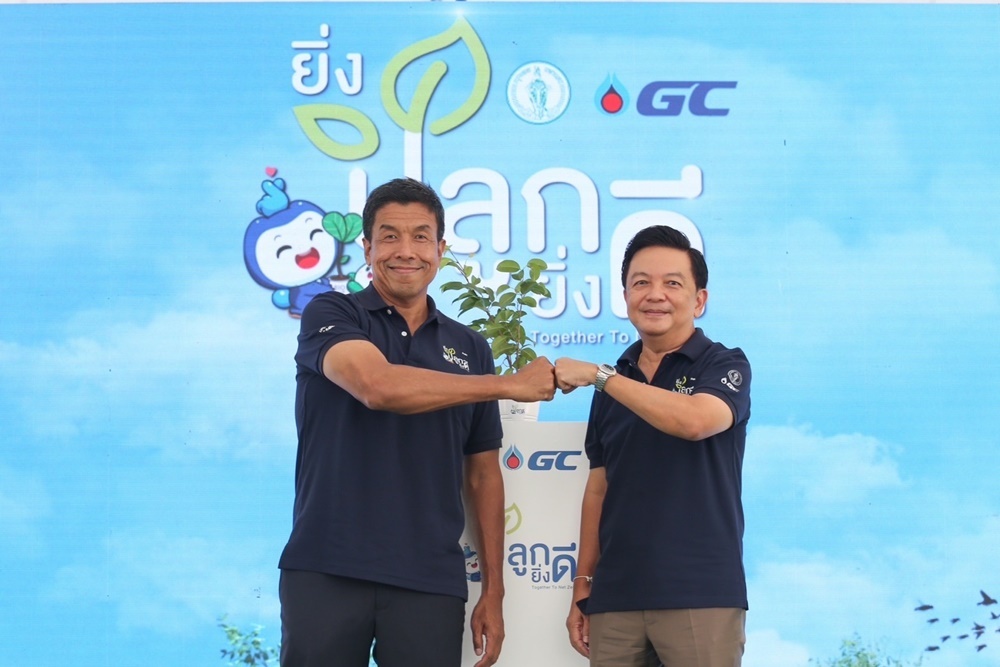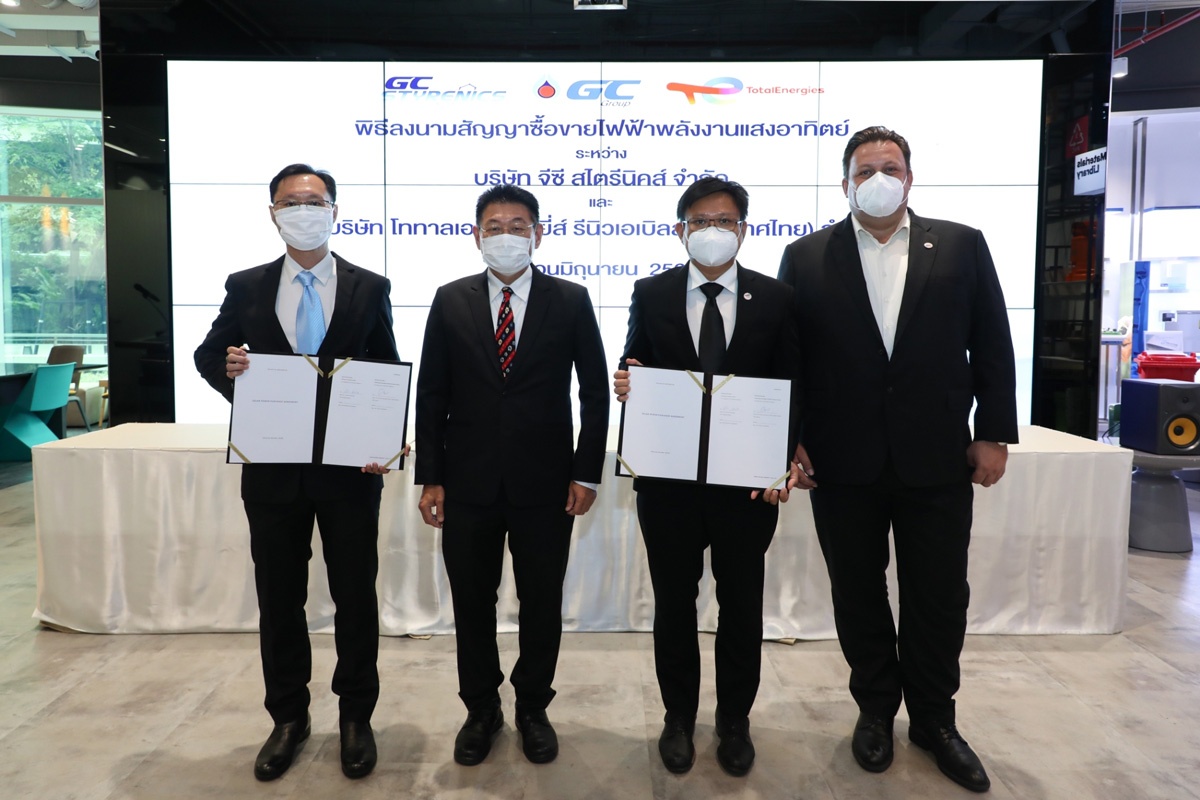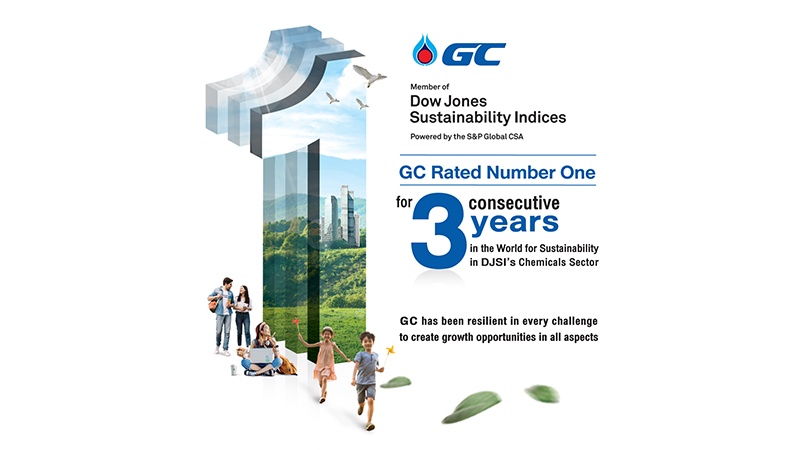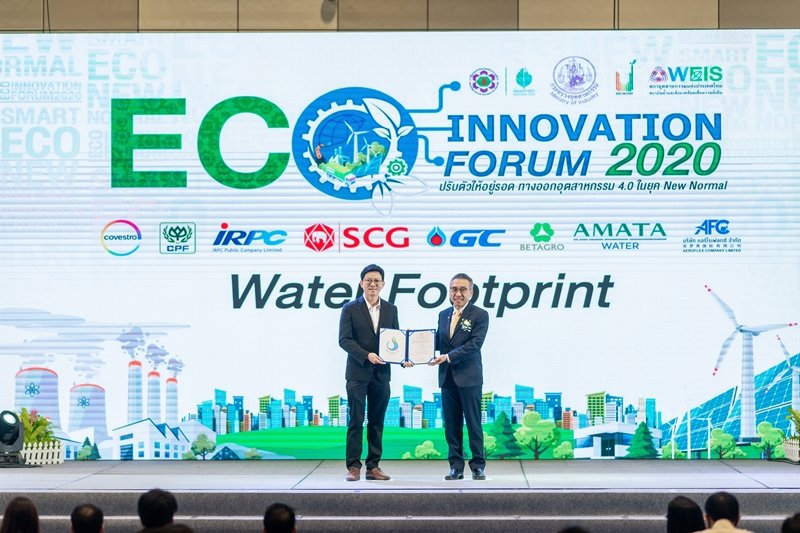News
The BMA joins hands with GC to transform garbage dumps into forests by launching “The More You Plant, the Better” project to create 55 rai of green space and help purify the lungs of urban dwellers

- The Bangkok Metropolitan Administration joins hands with GC to develop the area around the On Nut Solid Waste Disposal Center into a 55-rai green space under “The More You Plant, the Better” project.
- The planned tree-planting to restore the former waste landfill area into an eco-forest green space will also be a model for the study and development of planting forests for carbon credits.
- Joining with the BMA to plant 1 million trees will increase Bangkok’s green space and create a dust-filtering wall for the city.
On November 1, 2022, Bangkok joins hands with GC to launch “The more you plant, the better” project and plant trees to create an eco-forest green space on a 55-rai former garbage disposal area. In addition to improving the lung health of Bangkok-dwellers, the trees will also help to reduce PM 2.5 pollution and create an ecosystem that increases biodiversity and improves the environment. The project is in line with the Bangkok Metropolitan Administration’s policy to increase urban forest areas. Mr. Chadchart Sittipunt, Bangkok Governor, and Mr. Kongkrapan Intarajang, Chief Executive Officer and President of PTT Global Chemical Public Company Limited or GC, attended the ceremony at the landfill area of the On Nut Solid Waste Disposal Center, Prawet Subdistrict, Bangkok.
Governor of Bangkok Mr. Chadchart Sittipunt, said that, “At present, environmental issues are receiving a great deal of attention worldwide and climate change is a huge problem that we must be aware of so that we can avert future crises. This project, “The More You Plant, the Better,” in addition to tree-planting for the creation of green spaces, is considered an extremely beneficial project whereby we can contribute to the reduction of greenhouse gas emissions and mitigate the devastating impacts of climate change. Cooperation is essential to improving the city of Bangkok for the benefit of all.”
GC’s development of the area surrounding the On Nut Solid Waste Disposal Center will transform this landfill area that has been unused for the 12 years into a 55-rai forest. It will also be used for study and as a model for the development of forest-planting for carbon credits in response to Bangkok’s policy to plant a million trees, creating green spaces and providing dust-filtering walls throughout the city with the aim of enhancing the environment and improving the well-being of the people of Bangkok.
Mr. Kongkrapan Intarajang, Chief Executive Officer and President of PTT Global Chemical Public Company Limited or GC, explained that the aim of “The More You Plant, the Better” project is to reduce greenhouse gas emissions and drive Thailand’s goal to achieve net zero greenhouse gas emissions by 2065. The project also supports the Bangkok Metropolitan Administration’s policy of planting 1 million trees and is in line with GC’s ESG principles under the integrated balance of 3 dimensions—Environmental, Social, Governance and Economic—with GC aiming to reduce its own net greenhouse gas emissions and achieve its net-zero goal by 2050.
GC initiated “The More You Plant, the Better” project to use afforestation to create green spaces for the natural absorption of carbon dioxide by forests, including eco-forests and mangrove forests, in many provinces across the country and now here in this Bangkok area as well. The initiation of “The More You Plant, the Better” project with the Bangkok Metropolitan Administration on the former landfill site at the 55-rai On Nut Solid Waste Disposal Center has long been a challenge due to the condition of the area and the deteriorated soil conditions, but the collaboration between GC, the BMA, and experts from the Faculty of Forestry, Kasetsart University will see the restoration of this landfill and a reforested area of new trees.
This reforestation can help to absorb an average of 165 tons of CO2 per year and will release an average of 120 tons of oxygen into the atmosphere each year.
News

GC Group partners with TotalEnergies to implement solar rooftop for clean energy, aiming for greenhouse gas reduction and net zero achievement, guaranteeing partners and customers safe and sustainable products throughout the supply chain
Read More
GC Rated Number One for Three Consecutive Years in the World in the DJSI Chemicals Sector, As It Transitions into Net Zero Organization
Read More